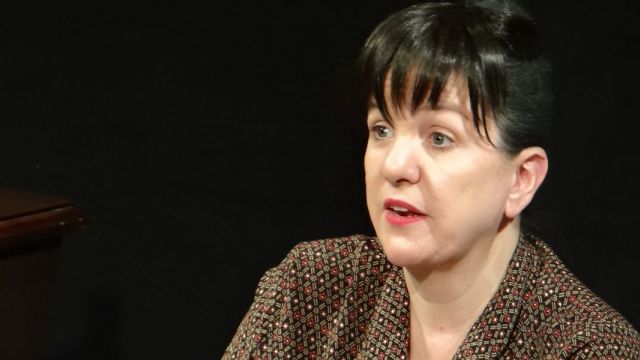The Portable Dorothy Parker
The year is 1943 and America has entered the Second World War. American poet, writer, critic, wit, and satirist, Dorothy Parker, based in New York, is faced by her publisher with selecting a collection of her poems and short stories for overseas based servicemen. Ultimately, the volume, called the ‘Portable’ series, compiled over two dozen of Parker's short stories along with selected poems from her works Enough Rope, Sunset Gun, and Death and Taxes. It remained in continuous print until 1976. This performance sees Dorothy chatting to her appointed editor about the choice of pieces. Bitingly, she trills, “Why don’t you take notes dear; it will make you feel useful”. Writer, Annie Lux, cleverly weaves Parker’s wit into a 60-minute story of Parker’s life and loves. The prose is fluent, prosaic and reflective and the script is full of nuance and colourful expression.
 Parker is neither easy to write about or to perform. Known for her razor-sharp wit and tongue, she famously said, “The first thing I do in the morning is brush my teeth and sharpen my tongue.” Her successes, including two Academy Award nominations, were curtailed when her involvement in left-wing politics resulted in her being placed on the Hollywood blacklist. Notorious for offending women performers in particular, she said, “Beauty is only skin deep, but ugly goes clean to the bone”. Witticisms like these saw her fired and alienated multiple times.
Parker is neither easy to write about or to perform. Known for her razor-sharp wit and tongue, she famously said, “The first thing I do in the morning is brush my teeth and sharpen my tongue.” Her successes, including two Academy Award nominations, were curtailed when her involvement in left-wing politics resulted in her being placed on the Hollywood blacklist. Notorious for offending women performers in particular, she said, “Beauty is only skin deep, but ugly goes clean to the bone”. Witticisms like these saw her fired and alienated multiple times.
Margot Avery presents Parker as a carefully modulated, somewhat gentle version of the famously tempestuous public persona of Parker and it is this side of her that director Lee Costello has underdone in her direction. Avery’s Parker presents a reflective monologue, rather than a dialogue with her editor and it is very controlled, lacking the passion, light and shade that we imagine attracted many lovers including alleged, one-time paramour Ernest Hemingway, who famously adored feisty women.
Parker was a passionate woman, preoccupied with both love, and suicide, marrying her first husband and keeping his name, and marrying her second husband, actor, turned screenwriter, Alan Campbell, twice, and details like these, make this performance captivating and engaging.

Avery looks convincingly like Parker and is well-placed in a simple set that includes several accurate period details that enhance the ambiance and believability of the story. Her skill with the cleverly contextually placed Parker ‘throw away’ lines including, “Don't look at me in that tone of voice,” and “I hate writing, I love having written.” Lux is a master of placing poems and witticisms in the most apt, contextually clever place and the dialogue flows naturally, even soothingly. Without losing pace or rhythm, Avery, an American, cleverly paces the fast-moving dialogue so that it is accessible to Australian audiences.
The audience loved the performance, particularly enjoying the witticisms, and for me, this makes it a high-quality Fringe piece that entertains without challenging or confronting. If you ‘of a certain age’, you will know who Parker was. If not, please find out and enjoy this witty, clever show. Lest I be too enamoured with Parker’s wit, I am reminded of her pronouncement: “That would be a good thing for them to cut on my tombstone: Wherever she went, including here, it was against her better judgment.”
Jude Hines
To check out or round-up of Adelaide Fringe reviews, click here.
Subscribe to our E-Newsletter, buy our latest print edition or find a Performing Arts book at Book Nook.

